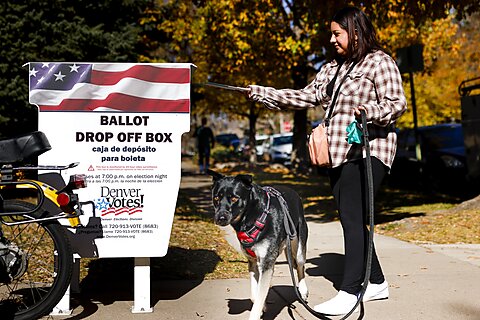Walter Olson
As I’ve noted before, there are many genuine reasons to be concerned about the practice of so‐called ballot harvesting, in which political operatives collect signed ballots from many voters, perhaps hold them at campaign headquarters for a while, and then drop them off in batches. In particular, the practice “poses real dangers to voter privacy, security, and freedom from improper pressure, especially when there is no feasible way to keep collectors from seeing how a ballot was marked or even helping the voter mark it,” before or after the fact.
Ballot harvesting has been at the center of numerous scandals, from North Carolina to Arizona to California to the United Kingdom. The latest has arisen in corruption‐plagued Bridgeport, Connecticut, where a judge will consider whether to set aside the results of a Democratic primary for mayor decided by 251 votes out of 8,173 cast. (Despite what one hears from #StopTheSteal enthusiasts, most systematic election irregularities appear to occur in local party primaries rather than national partisan contests, for the simple reason that these local races can sometimes be swung by dozens of votes, and it’s harder to keep conspiracies quiet if they get much bigger than that.)
Videotape evidence suggests that a party official dropped off more ballots than could plausibly have belonged to her immediate relatives, in likely violation of Connecticut’s relatively restrictive rules on the practice. (There do not appear to be allegations that the ballots were from persons not qualified to vote, and courts often take the position that misconduct by a third party should not stand in the way of counting an otherwise lawfully cast ballot.)
Some Connecticut lawmakers reacted by attempting unsuccessfully to ban lock boxes, which seems to me to draw exactly the wrong lesson from the episode. Assuming that absentee voting remains legal, this would place on wayward campaign operatives in the future at most the minor burden of buying stamps and dropping the same ballots in a U.S. Postal Service mailbox. As a bonus, conventional mailboxes almost never come with video monitoring, which is how the Bridgeport episode came to light. In what sense does this make anything more secure?
Indeed, if improved security is the goal, we should want to encourage wider use of drop boxes in place of conventional post boxes. As I argue in a forthcoming paper on omnibus election reform for the Nevada Public Research Institute, drop box receipt of ballots can readily be made much more secure than postal delivery. To quote from my forthcoming paper:
[D]rop boxes, unlike the postal system, can be heavied up, protected and surveilled with the specific goal of election security in mind. New technologies for monitoring, anti‐tampering, and secure transfer are developed regularly, in distinct contrast with the relatively static technology of conventional mail (which, again, is never optimized for the needs of election security). Even mediocre drop box setups start out with real advantages over mail, such as ensured delivery to the election office, and there is no reason to settle for mediocre amid continually improving security options, from sensors to chain of custody protocols and other user‐integrity controls.
There is evidence that user preference in some vote‐from‐home environments is in fact leaning toward drop boxes over mail. In Oregon, the state with the longest experience of vote‐by‐mail, ballots dropped off in boxes or at offices substantially outnumber those sent by mail. “According to the Oregon secretary of state’s office, from 2012 to 2018, slightly more than 36 percent of ballots were returned by mail; 63 percent of voters put their ballots in drop boxes or returned them directly to county officials,” reports Vox.
We should also be glad that opponents managed to block the misnamed For the People Act in the last Congress, an omnibus bill that among dozens of other provisions would have required states to adopt liberal rules on ballot harvesting.
























